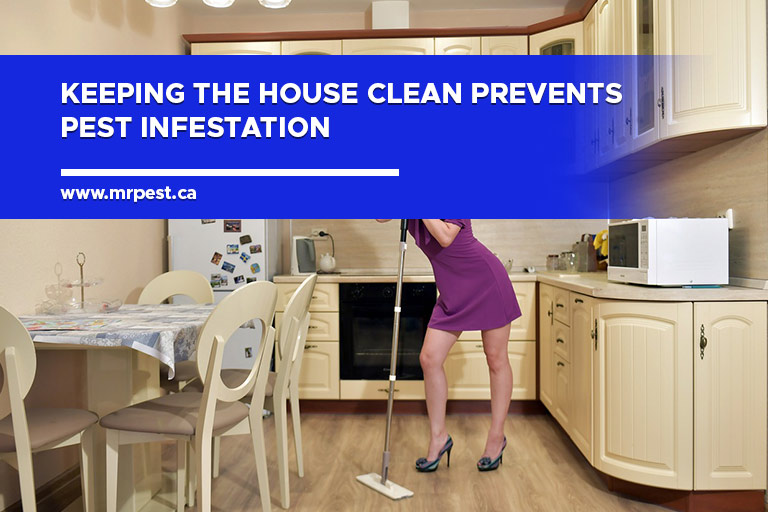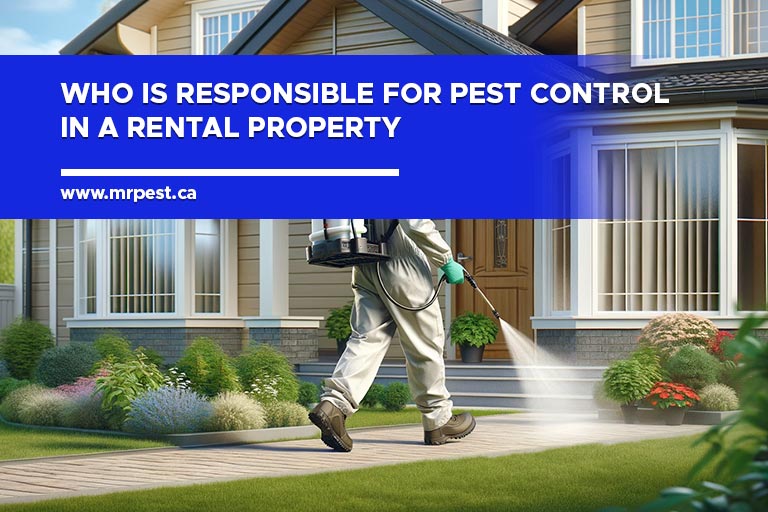Pest control is a critical aspect of maintaining a comfortable and healthy living environment in rental properties. Whether you’re a landlord or a tenant, understanding the responsibilities related to pest control is essential for preventing infestations and addressing them promptly. In this comprehensive guide, we will discuss the roles and obligations of both landlords and tenants in pest control, along with legal considerations and dispute resolution strategies.
Landlord’s Responsibilities
The role of a landlord extends far beyond simply providing a place to live. It encompasses a range of responsibilities, including the crucial task of pest control. Maintaining a pest-free environment is not only a matter of tenant comfort but also a legal obligation in many cases.
Maintenance of the Property
Landlords must ensure that their rental properties are well-maintained to prevent pest infestations. Regular inspections are key to identifying potential issues. Addressing structural problems, such as cracks in walls or gaps around windows and doors, can help in keeping pests out.
Providing a Pest-Free Environment
Before a tenant moves in, it’s the landlord’s responsibility to ensure that the property is pest-free. This includes taking initial pest control measures like hiring local pest control services to eliminate any existing infestations. It’s crucial to provide a clean and pest-free living space for new tenants.
Responding to Tenant Complaints
Tenants may encounter pest problems during their stay, and landlords must respond promptly. When a tenant reports a pest issue, it’s the landlord’s responsibility to coordinate pest control services. Timely action is essential to prevent the problem from worsening.
Tenant’s Responsibilities

As a tenant in a rental property, you play a crucial role in maintaining a harmonious and pest-free living environment. Your responsibilities extend beyond paying rent and abiding by the terms of your lease. In this section, we will explore the specific duties and actions expected of you to contribute to effective pest control. From maintaining cleanliness and hygiene to promptly reporting any pest issues, your proactive involvement is essential in preventing and addressing pest problems in your rented space. Let’s delve into the key tenant responsibilities in ensuring a pest-free dwelling.
Maintaining Cleanliness and Hygiene
Tenants play a significant role in preventing pest infestations. Proper disposal of garbage, regular cleaning routines, and maintaining a clean living space can discourage pests from taking up residence. Maintaining good hygiene practices is essential for a pest-free environment.
Reporting Pest Problems Promptly
Tenants should promptly report any pest problems to their landlords. Effective communication is key to addressing issues quickly. Tenants should also cooperate with pest control measures initiated by the landlord or local pest control companies.
Preventative Measures
Preventing pest infestations in a rental property is a shared responsibility between landlords and tenants. While landlords play a significant role in maintaining the property, tenants can contribute significantly by taking proactive measures to keep pests at bay. By following these preventative measures, tenants can help create a pest-free living environment:
- Sealing Cracks and Crevices – Inspect the property for any gaps, cracks, or openings that pests could use to gain entry. Seal these openings promptly to prevent unwanted guests.
- Airtight Food Storage – Store food items in airtight containers to minimize the attraction of pests. Properly sealed containers make it difficult for pests to access food sources.
- Regular Cleaning – Maintain a clean and tidy living space by regularly cleaning up crumbs, spills, and food debris. Pests are less likely to thrive in a clean environment.
- Proper Garbage Disposal – Dispose of garbage in sealed bins with tight-fitting lids. Avoid leaving garbage bags lying around, as they can attract pests.
- Eliminate Standing Water – Standing water can attract pests like mosquitoes and rodents. Ensure that there are no areas of stagnant water around the property.
- Landscaping Maintenance – Trim bushes and trees away from the property to prevent pests from using them as pathways to the building.
Shared Responsibilities

Ensuring a pest-free environment is a collaborative effort between landlords and tenants. Shared responsibilities play a pivotal role in maintaining a living space that is free from unwanted pests. Both parties need to understand their roles and work in harmony to prevent and address any pest-related challenges.
Lease Agreements and Pest Control Clauses
Lease agreements should clearly outline the responsibilities of both landlords and tenants regarding pest control. It’s important to have specific clauses that detail who is responsible for what. This helps avoid disputes and sets expectations from the beginning.
Cooperation between Landlord and Tenant
Landlords and tenants should work together to address pest issues. Open communication is crucial. Landlords should inform tenants of any upcoming pest control treatments, and tenants should cooperate by preparing the property as instructed.
Legal Considerations
Legal considerations are a crucial aspect of the complex landscape surrounding pest control in rental properties. Understanding the legal framework is essential for both landlords and tenants to navigate their rights and responsibilities effectively. Some specific laws and regulations govern pest control in rental properties, and being aware of them is crucial to avoid potential legal issues.
Tenant Rights and Responsibilities
Tenants have certain rights when it comes to a pest-free living environment. They have the right to expect a pest-free property at the beginning of their lease. However, they also have responsibilities in maintaining cleanliness and promptly reporting pest issues.
Landlord Obligations under the Law
Landlords have legal obligations to provide a pest-free property at the start of a tenancy and to address pest issues promptly. Failure to meet these obligations can lead to legal consequences.
Dispute Resolution
Disputes are an unfortunate but inevitable part of the landscape. Whether it’s a disagreement over responsibilities for pest control or other issues, knowing how to effectively resolve disputes is essential for both landlords and tenants. Understanding the path to resolution can help maintain a harmonious landlord-tenant relationship while ensuring that the rental property remains a comfortable and pest-free environment.
Steps to Resolve Disputes
In cases where there are disputes regarding pest control responsibilities, there are steps that can be taken. Open communication between landlord and tenant is the first and most important step. Mediation can also be a useful tool for resolving conflicts. Legal action should be considered as a last resort.
Landlords and tenants must work together to maintain a pest-free living environment. Clear lease agreements, effective communication, and adherence to legal obligations are essential in preventing and addressing pest issues.
If you’re in Alliston and require quality pest control services, don’t hesitate to contact local pest control companies. We can assist you in ensuring a pest-free rental property and a healthier living space. Remember, for pest control in Alliston, reach out to Mr. Pest Control at (888) 794-PEST. Your peace of mind is just a call away.
Frequently Asked Questions
-
What are some common pests found in rental properties, and how can they be prevented?
Common pests in rental properties include rodents, insects like cockroaches and ants, and occasionally, bedbugs. To prevent these pests, tenants should seal entry points, keep food in airtight containers, maintain cleanliness, and promptly report any signs of infestations to their landlords.
-
Is it advisable for tenants to purchase renter’s insurance that covers pest-related damages?
Renter’s insurance policies vary, so tenants should carefully review their insurance coverage. Some policies may provide coverage for damages caused by certain pests. However, prevention and reporting of pest issues to the landlord remain crucial in maintaining a pest-free environment.
-
How frequently should pest control treatments be conducted in a rental property?
The frequency of pest control treatments can vary depending on the location and the specific pests in question. In some cases, regular preventative treatments may be scheduled annually, while others may require more frequent interventions. Landlords should work with professional pest control companies to determine the appropriate treatment schedule.



